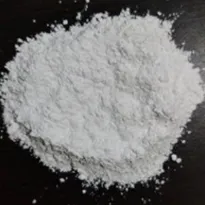


Natural Pesticides: The Environmental Choice for Green Prevention and Control
In agricultural production and daily life, pest control is an important part of ensuring crop growth and environmental cleanliness. Natural Pesticides, as an environmentally friendly and efficient product, has become an ideal choice for green prevention and control due to its unique ingredients and mode of action.

The core components of Natural Pesticides are derived from biological or plant extracts in nature
Common plant-based ingredients in lawn pesticides include pyrethroids, azadirachtin, and fisetin, which are extracted from plants such as pyrethroids, azadirachtin trees, and fisetin roots; There are also microbial derived components, such as Bacillus thuringiensis and Beauveria bassiana, produced by fermentation of specific microorganisms. These natural ingredients are scientifically extracted and proportioned to form formulations with insecticidal effects, avoiding the harm of chemical synthetic substances to the ecological environment.
The mechanism of action of Natural Pesticides demonstrates a high degree of specificity and safety
Pesticide spray plant derived ingredients often exert their effects by interfering with the nervous system of pests and disrupting their physiological metabolic processes. For example, pyrethroid can quickly paralyze the nerves of pests, causing them to lose their ability to move; Microbial derived components infect the cells of pests, inhibit their growth and reproduction, and ultimately lead to the death of pests. This mode of action is only effective against specific pests and is almost harmless to beneficial organisms such as humans, birds, bees, etc., ensuring the balance of the ecosystem.
Compared to chemical insecticides, the advantages of natural pesticides are significant
Pesticide spray has good environmental compatibility and can quickly degrade in natural environments without causing pollution to soil, water sources, and air, reducing the threat of pesticide residues to food safety. At the same time, pests are not easily resistant to them, and long-term use can still maintain stable control effects. In addition, some natural pests also have the effect of promoting crop growth, which can improve crop yield and quality while preventing diseases and pests.
Natural Pesticides have a wide range of applicable scenarios
In the field of agriculture, it can be used for pest control of crops such as vegetables, fruits, and grains, especially suitable for organic agriculture production; In horticulture, it can effectively prevent and control pests such as aphids and spider mites on flowers and seedlings; In the home environment, it can be used to prevent and control hygiene pests such as cockroaches, mosquitoes, and flies, creating a safe and healthy living space for people.
In summary, onslaught pesticide control has become an important product for green pest control due to its natural ingredients, precise mechanism of action, significant environmental advantages, and wide range of applicable scenarios. It effectively prevents and controls pests and diseases while safeguarding the balance of the ecological environment and human health, providing strong support for sustainable agriculture and green lifestyles, and demonstrating broad application prospects.
Natural Pesticides FAQs
What is Natural Pesticides?
Natural pesticides refer to substances extracted from plants, minerals, or microorganisms that have insecticidal activity. Compared to chemically synthesized insecticides, they are usually more environmentally friendly and pose less harm to non target organisms. Common natural pests include pyrethroids, azadirachtin, matrine, etc. They control pests by interfering with their nervous system, inhibiting growth and development, or repelling them.
What are the advantages of natural pesticides?
The advantages of Natural Pesticides include low toxicity, easy degradation, minimal disruption to ecological balance, and resistance to insecticides. Many natural ingredients can also serve as fertilizers or plant growth regulators, such as nicotine extract, which can both kill insects and promote plant health. In addition, they are typically suitable for organic agriculture and comply with green food production standards.
Are natural insecticides less effective than chemical insecticides?
The quick acting nature of natural pesticides may not be as good as chemical insecticides, but through reasonable use (such as early prevention and synergistic compounding), their control effect can meet the demand. For example, azadirachtin has a significant control effect on aphids and mites, while pyrethroid has a rapid knockdown effect on flying pests. Long term use can also reduce pesticide residues and soil pollution issues.
How to use Natural Pesticides correctly?
When using Natural Pesticides, attention should be paid to concentration, spraying time, and frequency. Most natural ingredients are easily decomposed when exposed to light, so it is recommended to spray them in the evening; Some products require secondary dilution to avoid drug harm. For stubborn pests, they can be rotated with other natural pesticides or added with additives (such as vegetable oil) to improve adhesion. In addition, monitoring the pest situation in advance and intervening early is more effective.
Are natural pesticides completely harmless to the human body?
Although natural pesticides have low toxicity, some components such as fisetin and nicotine may still irritate the skin or respiratory tract at high concentrations. Wear protective equipment when using, avoid direct contact, and store out of reach of children. Sensitive populations or breeding areas should carefully select ingredients, such as bees that are sensitive to pyrethroids, and avoid using them during pollination periods.
-
Zinc Chloride: a reliable stabilizer for ice dye color salts in the dye industryਖ਼ਬਰਾਂAug.11,2025
-
Propargyl Alcohol: A Multifunctional Chemical Additive in the Industrial Fieldਖ਼ਬਰਾਂAug.11,2025
-
Phosphorus Pentasulfide: a special material that combines moisture absorption and basic chemical valueਖ਼ਬਰਾਂAug.11,2025
-
Grass Pesticide: the invisible guardian of green lawnsਖ਼ਬਰਾਂAug.11,2025
-
Dimethyl Sulfoxide: Key Assistance in Sample Management and Drug Screeningਖ਼ਬਰਾਂAug.11,2025
-
Uncover the Benefits of Sodium Chlorateਖ਼ਬਰਾਂJun.24,2025
-
Sodium for Sale: Your Essential Resourceਖ਼ਬਰਾਂJun.24,2025


















